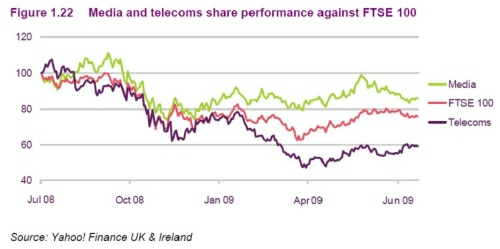Just got back from the “Bring Democracy to the Digital Economy Bill” reception kindly sponsored by “Consumer Focus”. There was a great speaker line up. My shorthand is non existent but this is pretty much what was said. If not verbatim then it provides the gist and I’m happy to modify and if I have any of it wrong – but I don’t think I have.
Tom Watson MP
Opening remarks. Not against change per se – just against doing it without adequate scrutiny. DEB is a bad law.
John Grogan MP
The probability is that the PM will go to the Queen to seek dissolution of Parliament on the morning of 6th April. This is likely to be before the 2nd reading of the DEB has started in Commons!. There is no precedent for this!
Noted that at a similar event sponsored by BPI 5 or 6 lobbysists claimed ownership to clause 120A. There was clearly a lot of effort being put in. It is reasonable to expect that things are not considered in haste.
Stephen Timms and Jeremy Hunt have apparently agreed to a clause 18 amendment today but word is the Lib Dems are not going to sign up to it.
The process is going to be concertina’d to 1 hour in the Commons and 1 hour in the Lords.
Not many MPs will be around during the wash-up. Most will be out on the campaign trail. It is important to garner as much support as possible against this bill at this last minute. It won’t be end of world if this bill is delayed so that we can have a proper debate.
Jim Killock, Executive Director, Open Rights Group
20k people have written to their MP. 2 k people have emailed Harriet Harman. £12 – £14 k raised in one morning to pay for an advert protesting overt the lack of scrutiny in this bill. MPs should be asking themselves whether this bill is legitimate
Simon Milner, Director of Industrial Policy, BT
BT wants to see reduction in piracy – after all BT sells music online. However the company wants to see that the law is balanced and proportionate. In this case the Government views have been too influenced by the music industry. For example people will be cut off because they haven’t taken suitable steps to stop music piracy. This isn’t right and could be unenforceable in law. Consumers could be left with an unholy mess.
Andrew Heaney, Executive Director of Policy and Regulation, TalkTalk
Used the example of his mother. If one of mum’s neighbours hacked into her broadband connection she could be cut off without being able to resort to legal aid. She would have to prove she has taken reasonable steps to stop it. This would cost her money perhaps a few hundred pounds? This is disgraceful / shameful.
Andrew had spoke with Stephen Timms about this. His reply was “But we have to do something don’t we?”.
Scott Taunton, Managing Director, UTV Media GB
Future of local radio is at stake here. There is not enough time to scrutinise the bill properly. The Secretary of State will have the ability to turn off AM and FM frequencies & move people to DAB. There are 120 m analogue radios around the country. This debate has come late in the day. Up to 120 local radio stations could be left behind in the switch off. DAB was 1st broadcast in 1988 radio technology has moved on to better things. Ofcom records only 3% of population has dissatisfaction with radio so why are we doing this?
(Note I haven’t given the non ISP bits of the bill any thought but it does seem outrageous that the Secretary of State seems to be awarding himself powers left right and centre)
Lord Whitty, Chair, Consumer Focus
Lord Whitty had lost his voice and his place was taken instead by that would be Adam Scorer, Consumer Focus Director of reputation and impact, or short, campaigns.
“This is a wholly unsatisfactory process. The idea that consumer interest is served by ISPs policing by decree is more than a shame in what is otherwise a good DEB.”
To finish off I was told this evening that Stephen Timms and Jeremy Hunt (cons) have apparently agreed to a clause 18 amendment today and that the Lib Dems are not going to sign up to it.
At this point I don’t know which way it is going to swing. Watch this space.
PS both MPs speaking were impressive individuals – you should vote for them.

